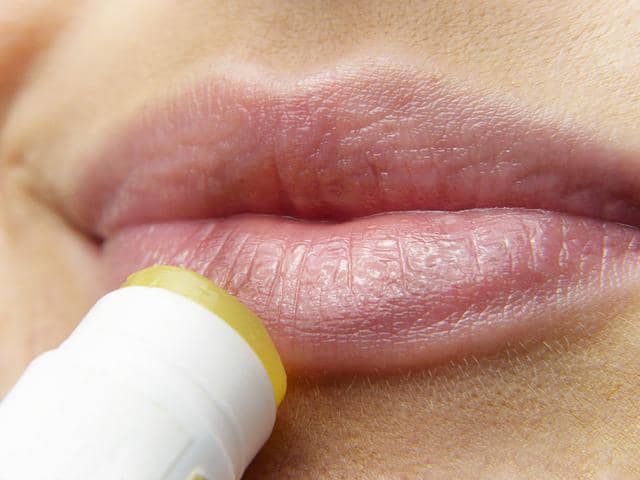How Common is Herpes in The UK?

Herpes is an infection caused by the Herpes Simplex Virus (HSV), which is divided into HSV-1 and HSV-2. Herpes is dormant in the body for the most part, but when it is reactivated, it can cause a Herpes outbreak.
So, how many people have herpes? The Herpes Simplex Virus (HSV) is very common with HSV-1 affecting approximately 70% and the HSV-2 affecting 10% of the population in the UK according to data. HSV-1 causes oral Herpes and is more common than HSV-2 which causes Genital Herpes.
In this blog, we’ll take a closer look at the Herpes virus and how such a common STI spreads in the UK. We will also discuss how to treat the condition and address other STI concerns.
How Common is Herpes in the UK?
There are two types of Herpes, the most common of which is Genital Herpes. It has been statistically proven that genital Herpes diagnosis has increased in both females and males since 2007.
Herpes is a common infection not only in the UK but worldwide, with 13% of people aged 15 to 49 carrying the HSV- 2 infection. The virus that causes oral Herpes, HSV-1, affects approximately 70% of the population and is often referred to as a cold sore. The HSV-2 virus, which causes Genital Herpes, affects 23% of adults in the UK.
HSV-1 is the most common strain of Herpes in humans, often referred to as ‘cold sores.’ The HSV-2 virus is more commonly passed on through sexual intercourse
Unfortunately, both oral Herpes and genital Herpes infections are asymptomatic, which means that Herpes causes zero to mild symptoms on the body. What’s more, if the Herpes infection is active at the site of the infection, blisters, and ulcers are common, ranging from mild to severe.
What is the difference between Herpes and Genital Herpes?
Given the infection’s ease of transmission, let’s look at the differences between the two and what they mean.
HSV – 1
HSV-1 is most commonly responsible for cold sores around the lips and mouth. This type of Herpes is spread by kissing or sharing objects like toothbrushes or eating utensils. The Herpes virus can remain dormant for a long time, but we can explain some of the factors that may cause an outbreak.
- General illness
- Fatigue
- Stress, both physical and emotional
- Trauma to the affected area
- Menstruation
- Immunosuppression as a result of an AIDS infection or other medication/chemotherapy
HSV – 2
HSV-2, also known as Genital Herpes, causes an infection around your genitals. This infection is commonly transmitted through unprotected sex or oral sex, but it can only be transmitted if one of the sex partners has the Herpes infection.
Anyone is susceptible to HSV – 2, but it is more common in women than in men. When a Herpes infection becomes active, Genital Herpes manifests as genital or anal blisters or open sores known as ulcers. Fever, body aches, and swollen lymph nodes are some of the other symptoms.
Find out more about the difference between HSV 1 & 2 in our recent blog: HSV-1 vs HSV-2: What’s The Difference?
Is there a cure for Herpes?
Unfortunately, no cure for Herpes has been discovered. There are antiviral medications for Herpes that you can take to prevent or shorten any sudden outbreaks. There is also a daily antiviral medication for HSV – 2 that can reduce the likelihood of transmission to partners.
As medicine and technology advance, clinical trials are being conducted to develop a vaccine that will protect us from genital Herpes infection. That said, no vaccine is currently available. There is still hope for the future, but vaccines are still in development and are being reviewed.
Find out more in our recent blog: Can Herpes Be Cured?
How to protect yourself from Herpes
To avoid genital Herpes, you can use the following methods to protect yourself:
- Using a condom and covering the infected area
- If your partner has blisters, a sore, or a tingle that suggests an infection is on the way, avoid vagina, anal, or oral sex.
- Sex toys are not shared.
Medication is available after visiting a sexual health clinic for a Herpes test to help you control the infection. This treatment may include an antiviral medicine or a prescribed cream for the infected area’s pain.
Your Sexual Health Herpes service
If you are concerned about any of the above or would like a routine sexual health check, please contact us. We are available for a phone call or you can order a home testing kit. Please do not hesitate to ask, we are a friendly group happy to assist.
If you’ve recently been diagnosed with herpes, there are ways to manage symptoms so that they do not affect your day-to-day life. Read more in our guide: Living With Genital Herpes- How To Prevent & Manage Outbreaks
Related questions
What are the most common STIs in the UK?
If you suspect you have an STI, avoid having sex until you have visited a sexual health clinic.
The most common STIs in the UK are listed below; if you have any concerns about any of the following, do not hesitate to seek a test or additional assistance.
What will happen during a sexual health screening?
An appointment at a sexual health clinic is nothing to be ashamed of; in fact, you should be proud of yourself for keeping safe.
So, if you want a routine check or are concerned about a specific STI symptom we have explained briefly what may occur during your appointment.
A sexual health professional will help you and may carry out the following assessment
- Ask you some questions about your sexual life.
- Examine your genitals, anus, or infected areas.
- Discuss what tests you may require
- Home testing kits are also available at some sexual health clinics.
